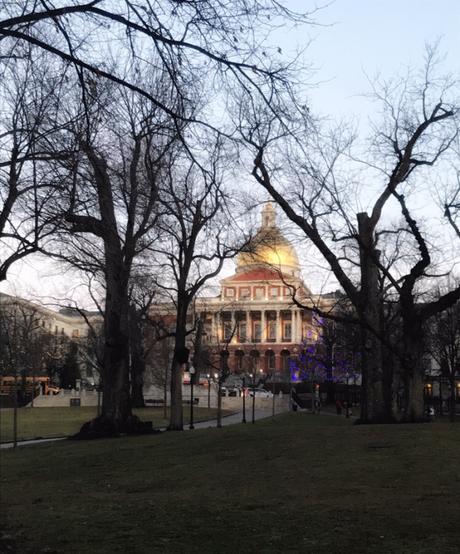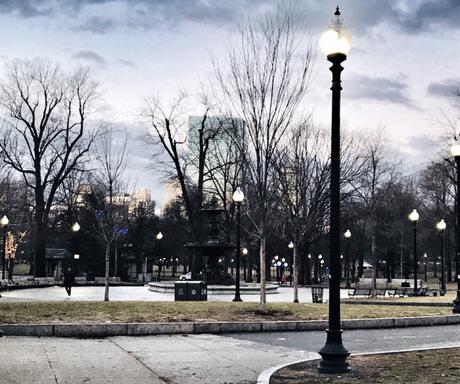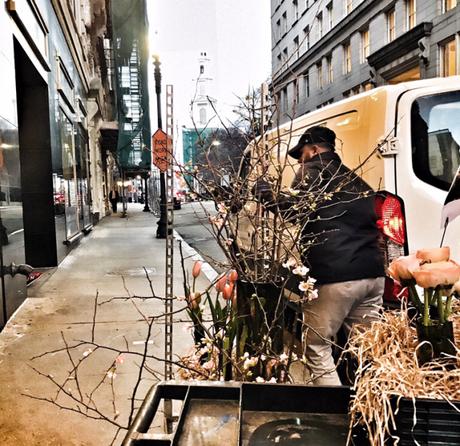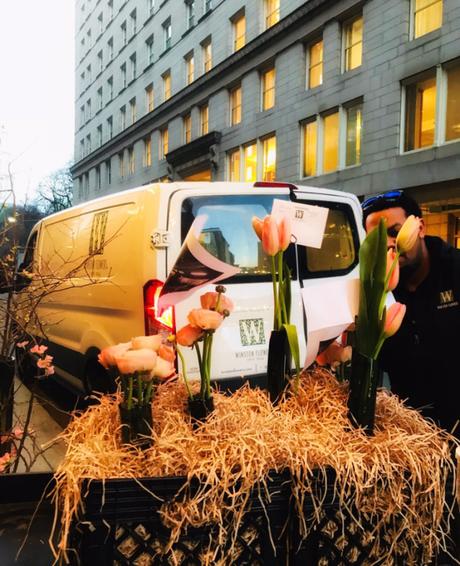A few years ago, Rachel Pieh Jones did a blog series called Let's Go Flaneuring. The series was based on a French word a word that was popular in nineteenth century France, particularly among writers. Essentially a was someone who walked (or rather - strolled). As the flâneur strolled, they observed. So they strolled and observed, and then they strolled and observed some more, and often they took notes or recorded their observations in their heads. But basically, it seems like a writing technique based on strolling and observing.
As I read more about the flâneur, I was fascinated by this idea of strolling in the familiar and in doing so, being able to craft stories from the commonplace. To take a step away from glorifying busy lives and instead embracing the idea of a slow and thoughtful stroll seemed not only delightful, but also wise.
I think about this today - a Wednesday morning. Usually I have one thing on my mind as I walk to work, and that is coffee. Coffee is my morning medicine, my adrenaline push, and my comfort in a cup. But I'm approaching a birthday, and suddenly I want life to slow down.
The sky is beginning to lighten as I get off the subway at Park Street and step out into Boston Common. Though the sun has not yet risen over the Atlantic Ocean I know by the light in the sky that it will be a bright, sunny January day. I stop and look around. To my left is the State House, it's gold dome already reflecting the morning light. In back of me, the Boston Common stretches toward the Public Gardens with tall buildings looming large in the distance. In front of me is the steeple of Park Street Church, a historic church that spoke out against slavery in the early days of the abolitionist movement.
I begin strolling from Boston Common up Tremont Street. I pass the famous Granary Burying Ground, Boston's third oldest cemetary where the likes of Paul Revere and Samuel Adams are laid to rest. As I reach School Street, a florist delivery drops off its morning boquets at the Omni Parker Hotel - cherry blossoms and light pink tulips. They are stunning, a sign that sometime down the road the bright and beautiful colors of spring will come. A woman nods at me, as though she knows what this flâneur is thinking.
I turn at School Street and head down to Washington Street. At the corner of Washington and School Streets, the bronze statues commemorating the Irish famine look at me in mournful memory. I smile. My family could tell you a story about my misunderstanding of these statues, but that's for another day.
My office is a half block shy of the Old State House but instead of my usual "pick up the pace, there's coffee in sight" I slow down.
Today I am a flâneur, and I don't want it to end too soon.
But it does end. I've reached my office and the Starbucks right next door. It's the end of this stroll. Work is calling, and I don't get paid to flâneur.
The problems of the city are not lost on me. Homeless still huddle in doorways. There is always an argument going on, even at early hours. Garbage is still wadded together, made mushy by the recent rain. City grime is ever-present. But what better way to confront these and seek the welfare of the city than by taking a step back, turning my quick steps into a slow stroll, and learning to observe.
In the the middle of my morning prayers, there is a longer prayer about being raised up from sleep and despair by God's compassion "that at dawn I might sing the glories of thy Majesty." Taking a step away from busy and entering into the stroll of the flâneur gives me time to sing the glories of God's majesty in the midst of Boston's city streets.





